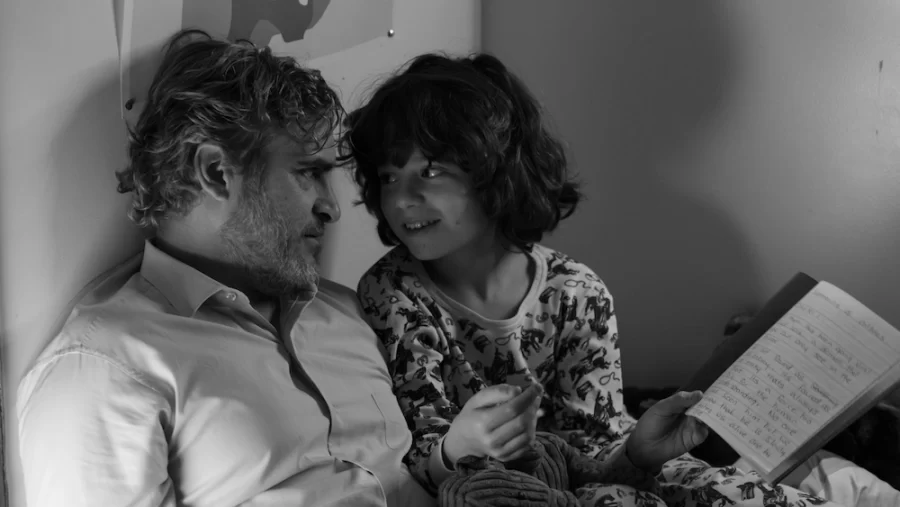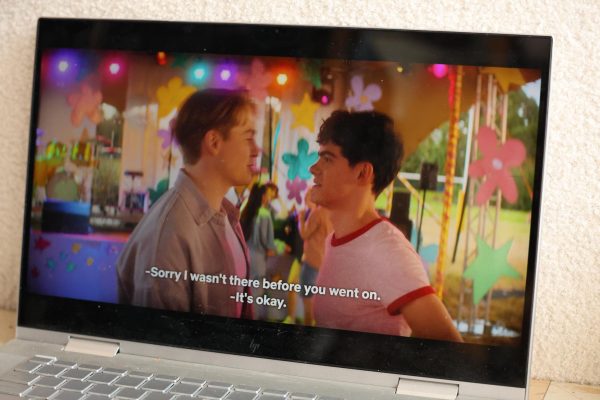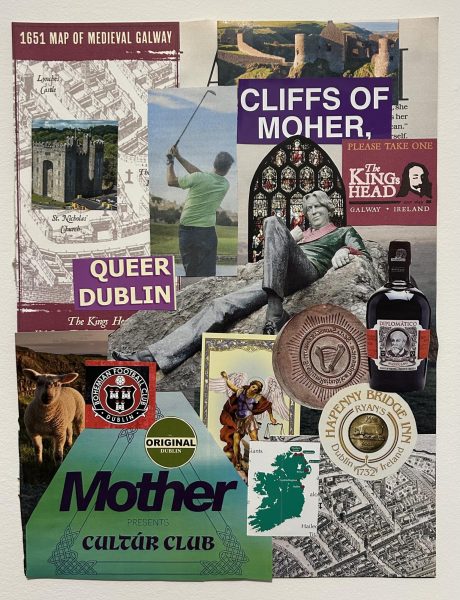“C’mon C’mon”: A Sketch of Love and Memory
Mike Mills’ “C’mon C’mon” explores themes of life and what unfolds when people cannot control their situations. (Courtesy of Twitter)
Within the beating heart of every Mike Mills film is an invitation veiled by whispers. His work —- modest in its plot but rich with emotion —- feels more like a large-scale sketch than a motion picture. Trance-like, flowing, and unabashedly humanist, “C’mon C’mon” meditates on control, love and the fact that nobody truly knows what they’re doing in this particular life.
I first watched “C’mon C’mon” on an evening flight to New York, drawn to it out of my affection for Mike Mills, Joaquin Phoenix and the muted melancholy of black-and-white films. A portrait of restoration set against the theme of time, it is a film in which memories, painful and proud, serve as the backdrop for its events.
The minimalist plot follows New York-based radio journalist Johnny (Joaquin Phoenix), who is working on a project in which he interviews the youth of various cities. One question serves as the foundation for his travels: When you think of the future, what do you imagine it’ll be? When his torn yet compassionate sister, Viv (Gaby Hoffmann), must seek emergency mental health care for her partner Paul (Scoot McNairy), Johnny offers to take care of his young nephew Jesse (Woody Norman) in her absence.
There is a subdued sentimentality in the writing of these characters, creating intimate solidarity that I felt I shared as a voyeur. It’s almost as if my ear was pressed against a wall, their secrets just barely audible. I empathize with their pain, feel the lesions in their chests and see the tears on their faces. Johnny, the oft interviewer, is forced to reason with his own confusion and avoidance in taking responsibility for his countless actions and inactions. Jesse, though wide-eyed and eccentric in typical kid fashion, is thrust into a world of adult issues that loom over his dwindling adolescence. Viv grapples with the weight of motherhood and her partner’s deteriorating mental health.
Imbued with sounds and words that bleed into one another, these silent truths are a testament to the act of listening. Every individual is sacred and deserving of their own piece of film. Jesse refuses to be interviewed, but records sounds of the city, the beach, and the silence of a hotel room. Arguments and confessions alike fade slowly into “Clair de Lune.” And through a series of phone calls between Johnny and Viv, lines of communication are woven once again after being felled by the death of their mother.
Mills’ unimposing camera nearly broke the surface tension of the silver screen, submerging me in watery cityscapes, windows and mirrors, and frames within frames. I understood what it feels like to run onto a bus for no reason at all. To love something so much I cannot understand it. To feel alienated. To feel needed. To shudder at memories and to embrace them.
I was nearing the end of the film when my plane began its descent into New York. People began to place their bookmarks and crack open windows, shrouding the cabin in the off-gray of dusk. I wish I could write more about the color of the sky or the face of the passenger next to me, but that’s the thing about memories —- they are fragmented and fleeting. What I do remember, however, is seeing Jesse on my screen at that moment, donning an oversized pair of headphones and a long-sleeve jersey. He looks slightly past the camera above and interviews himself, asking in an emulated Johnny voice: “Have you ever thought about the future?”
The microphone, which was comically large in his hands the entire film, suddenly seemed like an extension of himself. He goes on, “Ah, yea, whatever you plan on happening never happens. Stuff you would never think of happens. So you just have to c’mon c’mon, c’mon c’mon c’mon.”
There’s a haze cloaking his repetition, as if Jesse is playing a hushed game of telephone with the viewer. It is a plea and a promise, gently urging us to imagine ourselves both as children once lost in a grocery store and the people we hope to eventually become. “C’mon C’mon” is an ode to the value of moments we will eventually fail to remember, and the beautiful imperfections of those we do.
Ilaina Kim is a senior from Atlanta pursuing a major in English with a minor in philosophical studies. She joined The Fordham Ram as an Assistant Editor...













































































































































































































